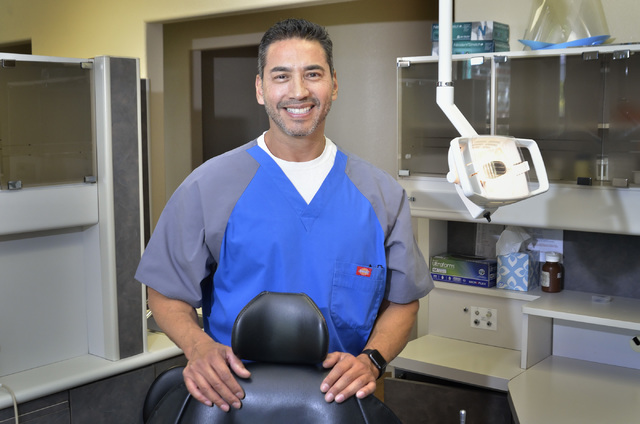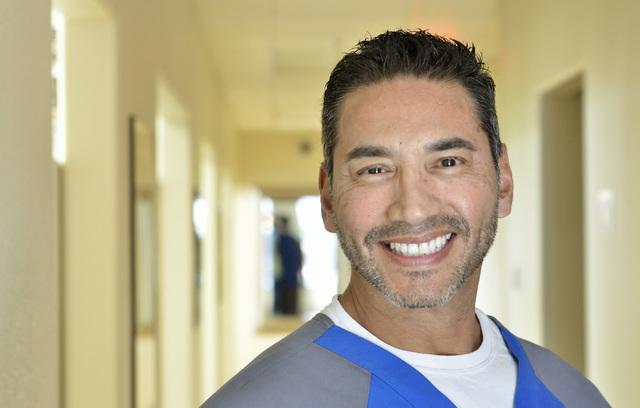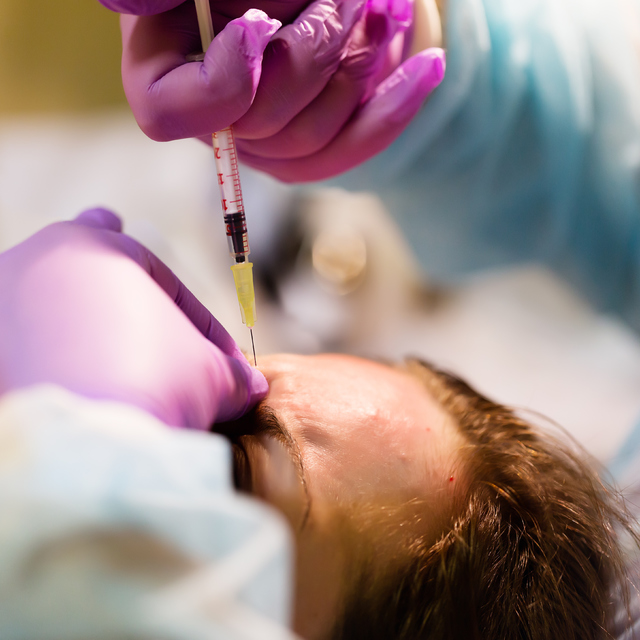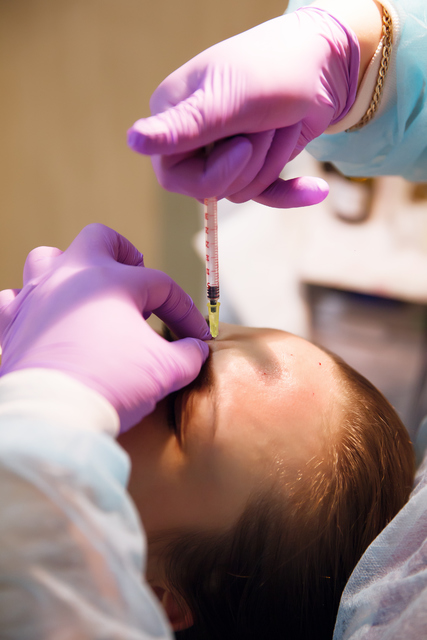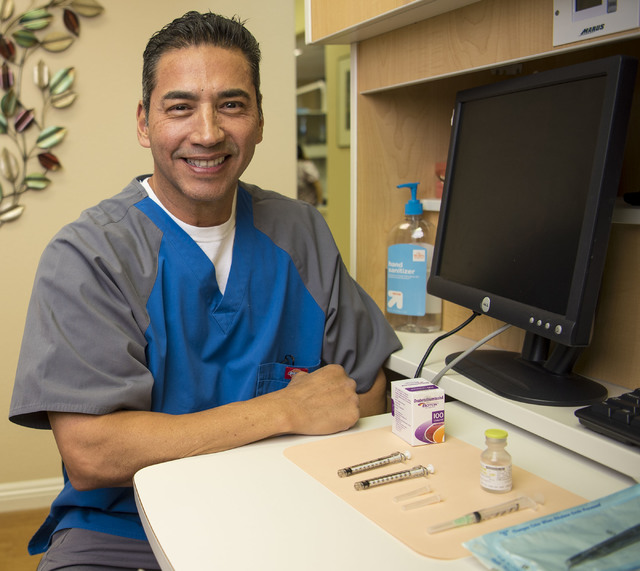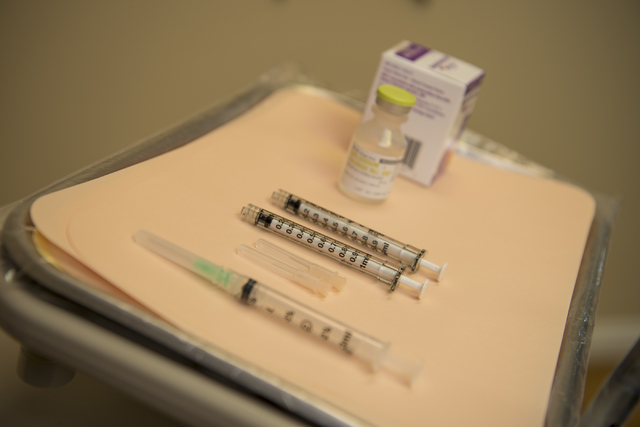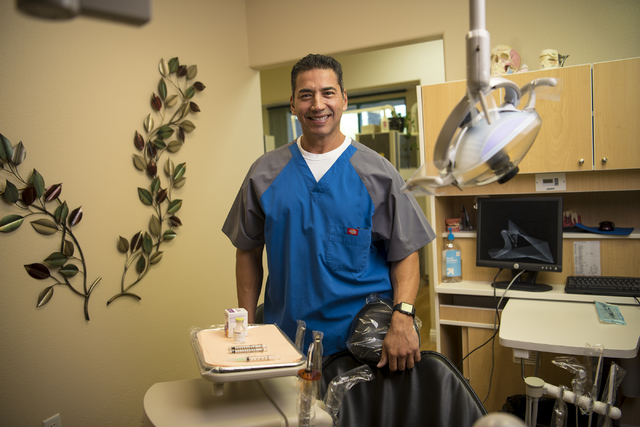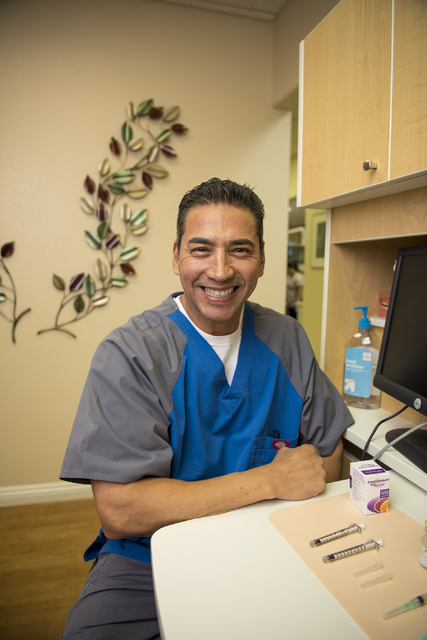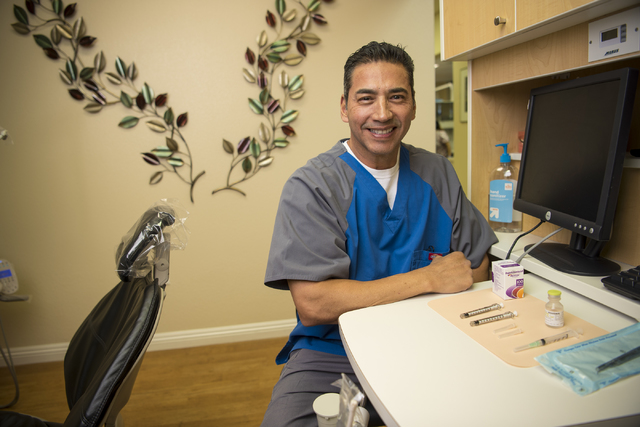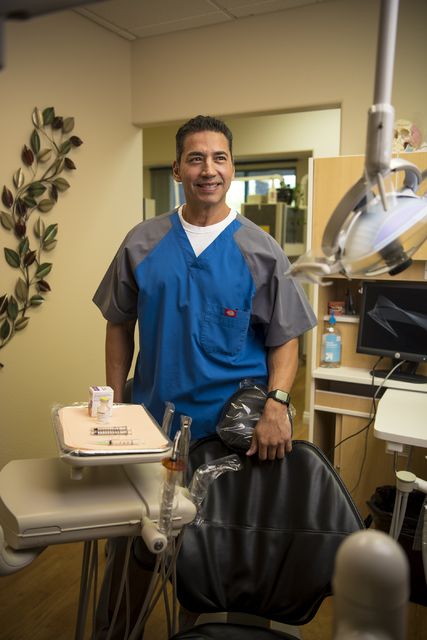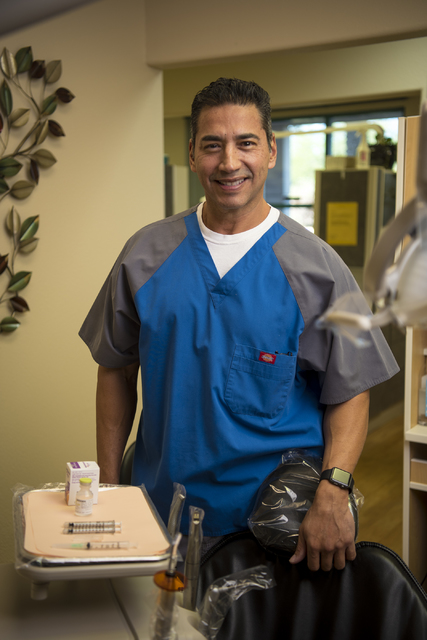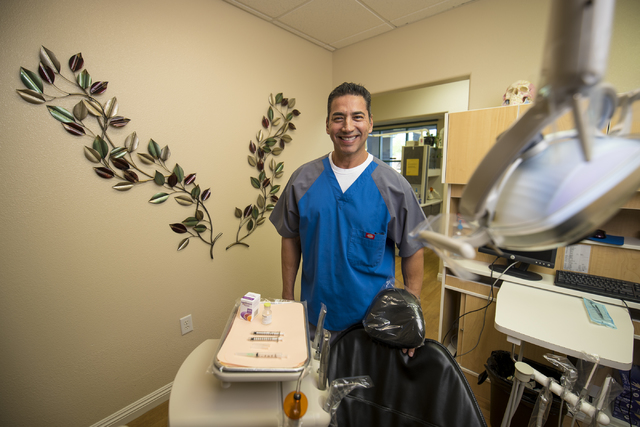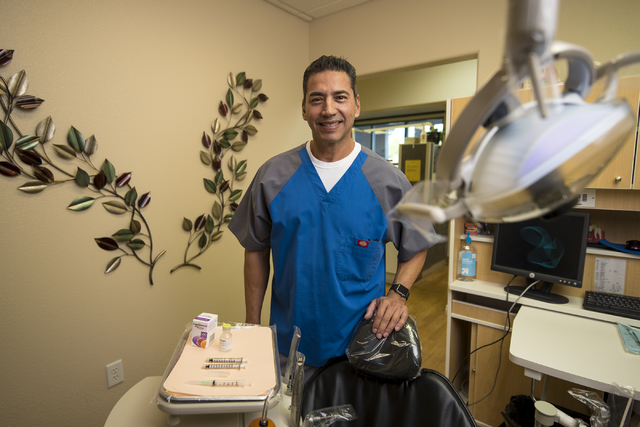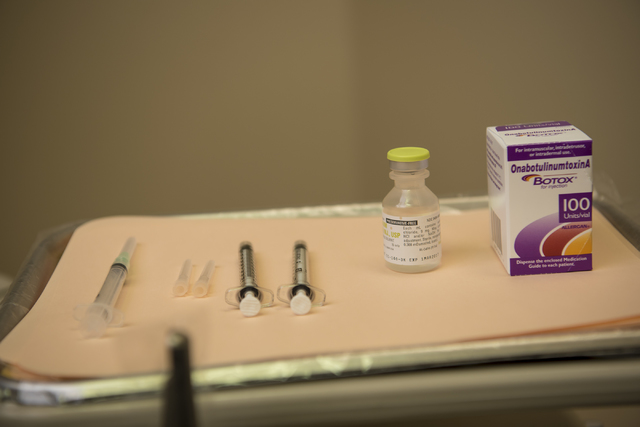Nevada dental, medical groups at odds over who can administer Botox
A long-running debate in Nevada’s medical community is heating up, with doctors challenging a new regulation that would enable dental hygienists to administer Botox to patients for either medical or cosmetic reasons.
The State Board of Dental Examiners, which previously approved allowing dentists to inject botulinum toxin — the most popular brand of which is Botox — last month approved rules that would extend the privilege to licensed dental hygienists.
But the Nevada State Medical Association, which represents the state’s practicing physicians, is pushing back. It says use of the toxin should not be extended to dental hygienists, who can be licensed after as little as two years of study at an accredited college, and that dentists should be restricted to applying it to certain areas of the head.
Dentists, who can use the injections to address problems such as excessive grinding and clenching of the teeth and temporomandibular joint (TMJ) disorders, have called the dispute a “turf war,” arguing that physicians are attempting to protect a lucrative and increasingly common medical procedure.
Not so, maintains the medical association’s executive director, Catherine O’Mara, saying that the association is merely concerned that the risks of applying Botox aren’t being taken seriously.
“It feels to us like this was just pushed through without consideration for the patient,” she recently told members of the dental board.
Botox is commonly used in small doses for cosmetic reasons, blocking nerve transmission to muscles to temporarily reduce the appearance of wrinkles. But it also has numerous medical uses, including helping control chronic migraines, overactive bladder and excessive underarm sweating, among other conditions.
The toxin occasionally can cause side effects, including pain, swelling, flulike symptoms, droopy eyelids and drooling. In rare instances, it can spread to other parts of the body and cause symptoms of botulism, including vision problems and difficulty breathing, that can be fatal, according to the Mayo Clinic.
Other states have taken differing approaches to the Botox issue, with some giving dentists full authority to administer it and others restricting it to dental applications.
Currently, Nevada dentists with training on the injections are permitted to administer botulinum toxin in their offices only to the faces and jaws of existing patients.
The dental board last year moved to allow dental hygienists to administer the toxin under a dentist’s supervision, but backed off in January to clarify what is considered “appropriate training,” said Debra Shaffer-Kugel, the dental board’s executive director.
It then approved the regulation with the requirement that dentists or hygienists undergo 24 hours of training on administering the toxin and related issues in order to be certified.
The regulation is expected to be sent next to the state Legislative Commission.
O’Mara’s group is fighting the regulation, saying that dental hygienists aren’t adequately trained to perform the procedure. It also wants to specify that dentists can administer Botox only on certain parts of the head, not perform wrinkle reduction on the forehead, for instance.
“There’s no restriction that the Botox be limited to just dental procedure, intraorally nose to chin,” she said.
O’Mara also accused the dental board of not consulting with policymakers and physicians to discuss the proposed regulation, and argued that the dental board should not be regulating Botox at all, saying that under state law that falls to the Nevada State Board of Medical Examiners.
“This board is tasked with protecting the public health and safety, and I think by pushing through the regulation today, you haven’t done that as well as you could have,” O’Mara told the dental board.
Shaffer-Kugel rejected that contention, saying the board had reached out to several official medical bodies, including the Board of Medical Examiners, about the proposed regulation.
She also said the medical board doesn’t have exclusive authority over the toxin and has passed no regulations to guide Botox administration by medical assistants.
“That changed the game, whether you want to admit it or not,” Shaffer-Kugel said of allowing medical assistants to perform Botox procedures.
A spokeswoman for the state Board of Medical Examiners said it has taken no formal position on the regulation.
Dentist Mark Escoto, who currently administers Botox to patients for medical reasons, said he believes dentists are well trained to use the toxin for dental or cosmetic reasons.
Rather than fighting over which medical professionals should be allowed to inject it, Escoto said, medical regulators should be working to prevent untrained individuals from administering the toxin.
“I see it happening in spas and (by) people who are very unqualified. That’s where they should be focusing,” he said.
Contact Pashtana Usufzy at pusufzy@reviewjournal.com or 702-380-4563. Follow @pashtana_u on Twitter.



